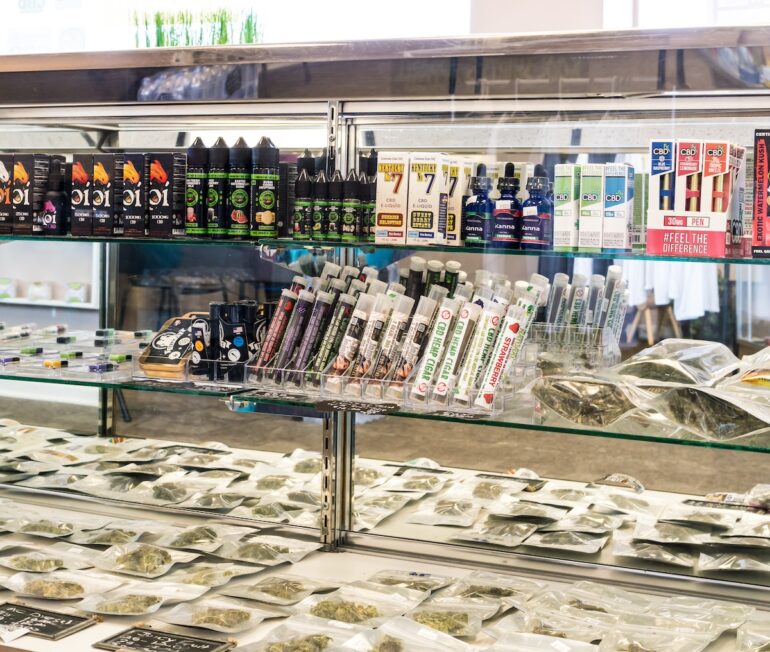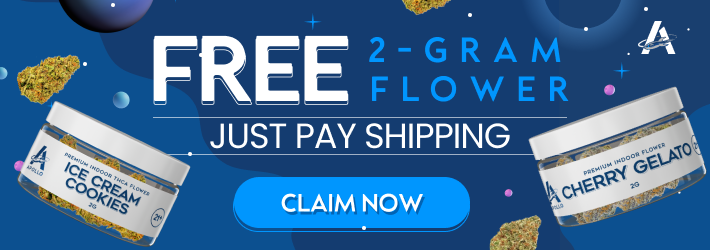On Wednesday, October 25th, Nebraska Attorney General Mike Hilgers sued 10 hemp companies, alleging consumer protection violations as a result of mislabeling and the intentional targeting of youth.
While lawsuits surrounding the way to interpret unclear hemp laws are common, this suit establishes a new way lawmakers can target hemp companies under consumer protection laws.
If the lawsuit is successful, it will form a blueprint that could be easily used by Attorney Generals across the country against unscrupulous hemp companies.
So what exactly does the lawsuit allege? And is it likely to be successful?
The Lawsuits: Dangerous Products, Labeled Inaccurately
Attorney General Hilgers filed 10 complaints in total, but the one against the Cannabis Factory, LLC is a good example of the sort of claims made.
While the document is long and goes into the legal and scientific background underpinning these issues, there are a few key areas that led to specific charges against the company:
Manufacturing, distributing and selling THC-containing products…
- without considering age restrictions or youth access/purchase.
- that are similar to food products that are marketed towards children.
- “that are likely to attract consumption by children.”
- that are not accurate with regards to THC content, either containing undisclosed THC, not containing the THC it claims or that are inaccurate.
- that contain THC levels that are harmful to people and especially children.
- which are foods “adulterated” with THC in quantities that may be harmful to health.
These charges are re-stated several times as violations of specific laws: the Nebraska Pure Food Act (especially 81-2,282), the Consumer Protection Act (e.g. 59-1602) and the Deceptive Trade Practices Act (87-302).
The complaint shows examples of products sold by the Cannabis Factory, including pre-rolls, flower, distillates, edibles and vapes, and goes into detail about the cannabinoids actually in the product vs. what is claimed. For example, Forbidden Punch claims to contain 420 mg of THCA and THC-P, but actually contains neither, instead having 100 mg combined of delta-9, delta-8 and exo-THC. Exo-THC is usually a byproduct of THC synthesis or post-extraction processes, according to Dr. Christopher Hudalla of ProVerde Labs, and was found in the majority of products.
This example hits a lot of the key points the complaint makes: the dosage stated is clearly inaccurate, it is still much higher than would be allowed under regulated marijuana programs across the country, and it doesn’t even contain what it claims to.
Another set of examples that really hit on the state’s complaints are the various (rice) “Krispy Treat” products they sell, which the state says mimic products popular with or marketed to children, and have 250 mg of delta-8 THC. They also contain delta-9 THC and exo-THC, according to the complaint, but apparently the correct amount of THC overall.
Is the State Right? How Will the Lawsuit Turn Out?
While it’s hard to say how this will turn out with any certainty, many of the state’s claims do appear to have a solid basis.
Clearly a product that contains less than a quarter of what is advertised is marketed in a deceptive way. If your coffee was supposed to be 8 oz, and it came in an 8 oz cup, but it only actually contained 2 oz of coffee, you’d be pissed. And rightfully so. Likewise, if it was supposed to be coffee but was actually tea, you’d have still been lied to even though you did get a warm drink out of it.
Other issues that seem pretty clear cut include claims that products sold by the Cannabis Factory – and several others, keep in mind – resemble other brands, which would be covered by rules around deceptive trade practices. The “Krispy Treats” might not be packaged like Rice Krispies Treats, but we are all well-aware of why it was spelled with a K rather than a C on the edible. Likewise, the Department of Agriculture has been warning that foods containing cannabis products would be considered adulterated for some time.
Some specific claims are a bit more open to challenge, though. For example, even though most of the products have some problem, it’s unclear if they are “likely to attract consumption by children” in all cases, for instance, beyond some general assumptions about whether or not a rice krispy treat is “for kids.” The state can probably win this argument but it’s certainly not as open and shut as the other points.
Likewise, the lawsuit alleges that the Cannabis Factory sold products “without consideration for age restriction or youth access.” However, firstly, when you visit their website, before you can browse, you get a pop-up asking if you’re 18. This is clearly not “unconsidered,” but of course it doesn’t mean the age restrictions are sufficient.
Secondly, Legislature Bill 657 (the Nebraska Hemp Farming Act) does not include any age restrictions for purchases, so however you may criticize the morality of actually selling to youth: they are not breaking the law by doing so. It is not clear from the complaint or any other reporting whether or not the Cannabis Factory has sold to youths, but in any case the blame rests on politicians who have not restricted the sale of intoxicating products to youth. It isn’t the hemp retailers’ fault this hasn’t been done.
Forget the Farm Bill: A New Threat to the Hemp Industry
Most legal action so far has centered around whether or not specific hemp cannabinoids are legal at all, and owing to the plain wording of many laws, these often result in wins for the hemp industry. But this suit is different, and it’s much more likely to land a blow on sellers as a result.
We spoke to Neil Willner, co-chair of the Cannabis Group at Royer Cooper Cohen Braunfeld, who commented that, “I find this type of lawsuit fascinating because even though intoxicating hemp cannabinoids like delta-8 THC may be technically legal in Nebraska, these lawsuits don’t even contemplate the legality issue. Rather the AG brings clear cut claims under the state’s consumer protection statutes and food laws.”
And as covered in the last section, most of the claims are hard to argue against. It’s unlikely anybody will accept that a label claiming four times more THC than the product contains is informative or accurate. And this problem is actually pretty widespread in the national hemp industry, with even our own lab analyses showing this clearly.
So the question is: if Attorney General Hilgers is successful, will other states follow along? With the poor track record of the hemp industry when it comes to accuracy in labeling, there are tons of states that could easily bring similar action against the industry. The key here is that any issues relating to the Farm Bill’s update or the text of the existing bill have been completely sidestepped by Hilgers’ approach.
While many of the cases about whether delta-8 THC is a “hemp derivative” and legal or “synthetic” and illegal have a kind of built-in end-date – as Congress will likely clarify this very soon – the claims in this lawsuit are here to stay. In states with legal hemp but politicians who aren’t so happy about how it’s playing out, this could be the opportunity they’ve been waiting for.

